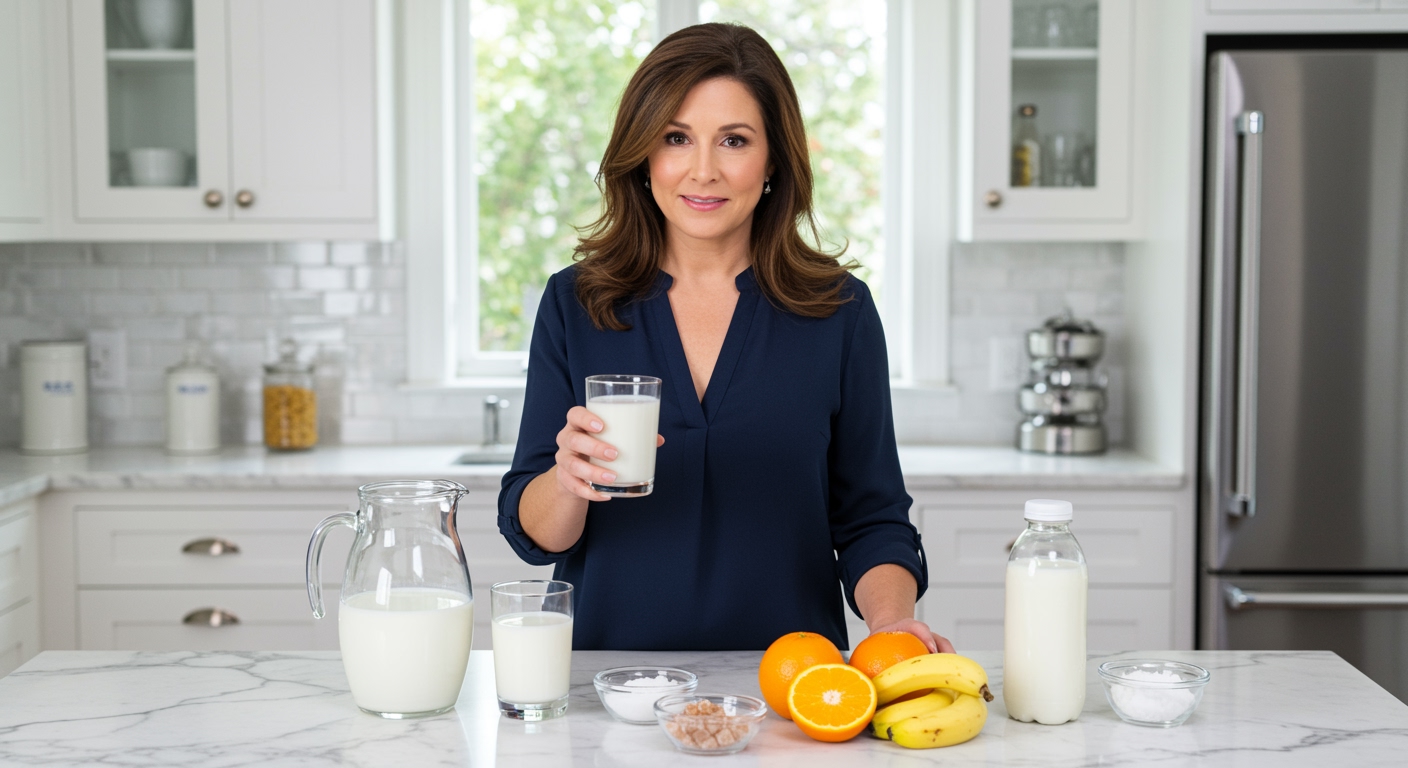✪ Key Highlight: University research proves milk hydrates body more effectively than water due to protein and electrolyte content.
Introduction
Everything you thought you knew about hydration just got turned upside down.
A groundbreaking study from the University of St Andrews in Scotland has revealed that milk actually hydrates your body better than plain water.
Hi, I’m Abdur, your nutrition coach and today I’m going to analyze this surprising research that challenges decades of hydration advice.
What Did The Research Actually Find?
The University of St Andrews researchers compared how different beverages affected hydration levels in the human body.
They tested water, milk, sports drinks, and other common beverages to see which ones kept people hydrated longest.
Both full-fat and skimmed milk provided significantly longer-lasting hydration compared to plain water.
The difference was not small or insignificant.
Dr. Ronald Maughan, the lead researcher, explained that milk contains sugar, protein, and fat that slow down how quickly fluid leaves your stomach.
This means your body holds onto the hydrating fluid longer instead of quickly passing it out through urine.
✪ Fact: Milk’s nutrients create a slower gastric emptying rate, extending hydration time compared to water alone.
Why Does Milk Beat Water For Hydration?
The secret lies in milk’s unique nutrient composition that water simply cannot match.
Milk contains natural electrolytes like sodium and potassium that help your body retain fluid more effectively.
These minerals replace what you lose through sweat and support your body’s natural fluid balance.
The protein in milk also plays a crucial role in slowing gastric emptying, which is the rate at which your stomach releases contents into your small intestine.
When gastric emptying slows down, your body has more time to absorb and utilize the fluid you consume.
Water, on the other hand, passes through your digestive system quickly because it lacks these retention-enhancing nutrients.
✪ Pro Tip: Choose milk after intense exercise when your body needs both hydration and electrolyte replacement.
Should Everyone Switch From Water To Milk?
The answer is not as simple as completely replacing water with milk in your daily routine.
People who are lactose intolerant or allergic to dairy should obviously avoid milk and look for other hydrating alternatives.
The researchers also noted that drinks with high sugar or caffeine content can actually increase dehydration risk by pulling water out of your body.
Water remains an excellent choice for people with specific health conditions or those who need to avoid extra calories.
The key insight from this research is that beverage type matters just as much as the amount you drink.
Moderation is crucial because drinking too much milk can add unnecessary calories and fat to your diet.
✪ Note: Balance is key – include various hydrating beverages based on your personal health needs and dietary goals.
When Should You Choose Milk Over Water?
Timing your beverage choices can maximize the hydration benefits this research revealed.
After exercise is an ideal time to choose milk because your body needs both fluid replacement and electrolyte replenishment.
During hot weather, milk can help you stay hydrated longer than water alone.
If you are going to be in situations where you cannot drink fluids regularly, milk’s longer-lasting hydration could be beneficial.
However, water is still the better choice when you need quick hydration without extra calories.
The best approach is to include a variety of hydrating drinks in your daily routine rather than relying on just one beverage.
✪ Pro Tip: Consider milk as your post-workout recovery drink to combine hydration with muscle-building protein benefits.
The Bottom Line
This University of St Andrews research has fundamentally changed how we should think about daily hydration choices.
Smart hydration is not just about quantity but also about choosing beverages that work with your body’s natural processes.
I would love to hear your thoughts about this surprising research and whether you plan to incorporate more milk into your hydration routine – please share your questions or experiences in the comments below.
References
At NutritionCrown, we use quality and credible sources to ensure our content is accurate and trustworthy. Below are the sources referenced in creating this article:
- Instagram: Fitness Fervor Post
- Threads: Hydration Research Discussion
- YouTube: Hydration Study Explanation





